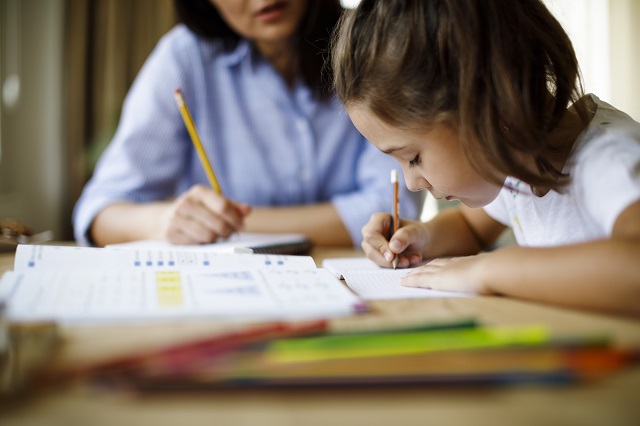
(damircudic / Getty Images)
*This piece originally aired on June 7th, 2019*
How would you describe your childhood? Did your parents have a laissez faire attitude, letting you run wild and free, or did they have more rigid rules, which dictated your life choices?
Perhaps you’re now a parent yourself — which parenting approach have you chosen?
Matthias Doepke, a professor of economics at Northwestern University, argues that we often assume that parenting is all about culture, and that the reason that those from different countries or backgrounds parent differently is specifically because of those backgrounds (varied religious, political, and geographical traditions). But, Doepke argues, economics is a far more significant driver of parenting. He’s the co-author of “Love, Money and Parenting - How Economics Explains the Way We Raise Our Kids,” and he tells us how income inequality largely shapes how we raise our children.
Three Takeaways:
- Doepke says that the higher the income inequality in a country, the harder parents will push their children to achieve success.
- In Sweden, where income inequality is low, only about 10% of parents believe in pushing their kids hard academically. In comparison, in the U.S., two thirds of all parents believe that emphasizing hard work to kids is important.
- While culture has a role to play in parenting, Doepke argues that culture is often shaped by economic conditions. In the past, parenting techniques in the U.S. were typically less “hands-on” than today. Doepke says when immigrant families shift to places with more economic equality, they too adapt and ease up on their parenting styles.
More Reading:
- Find out more about Doepke’s research in an article for The Washington Post that he wrote with co-author Fabrizio Zilibotti.
- The Chicago Tribune explores how the multi-billion dollar tutoring business impacts inequality in education.
- It takes a village to raise a child. So if you thought the Swedish approach to parenting was unique, read this NPR article on how Mayan and other indigenous, tribal communities depend on the community to raise children.
- The New York Times launched a parenting website, NYT Parenting, that aims to serve all kinds of families.

